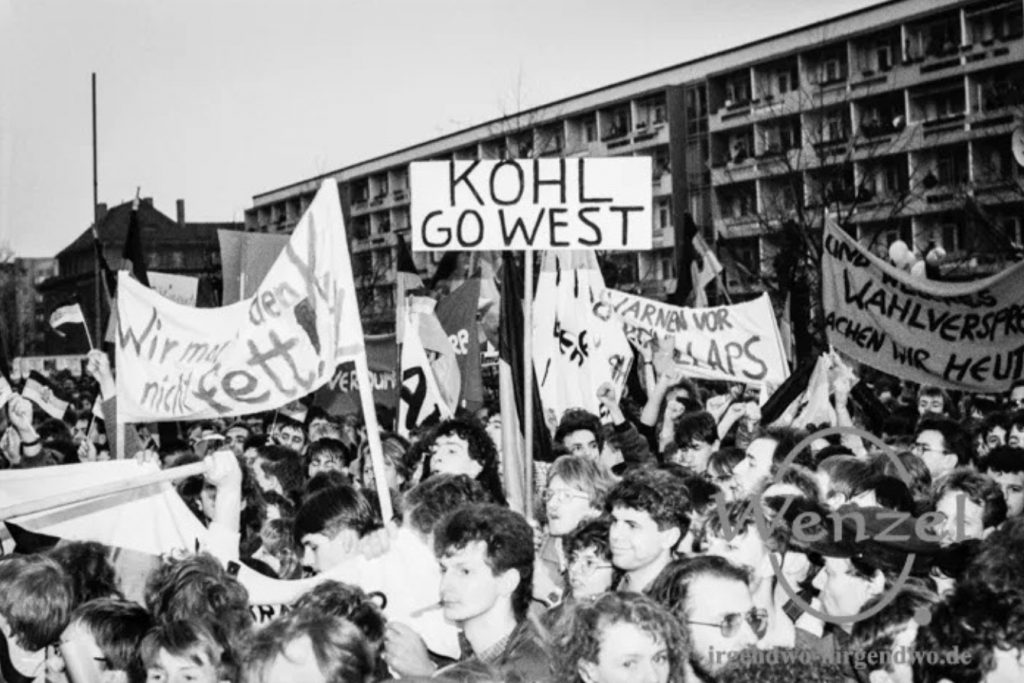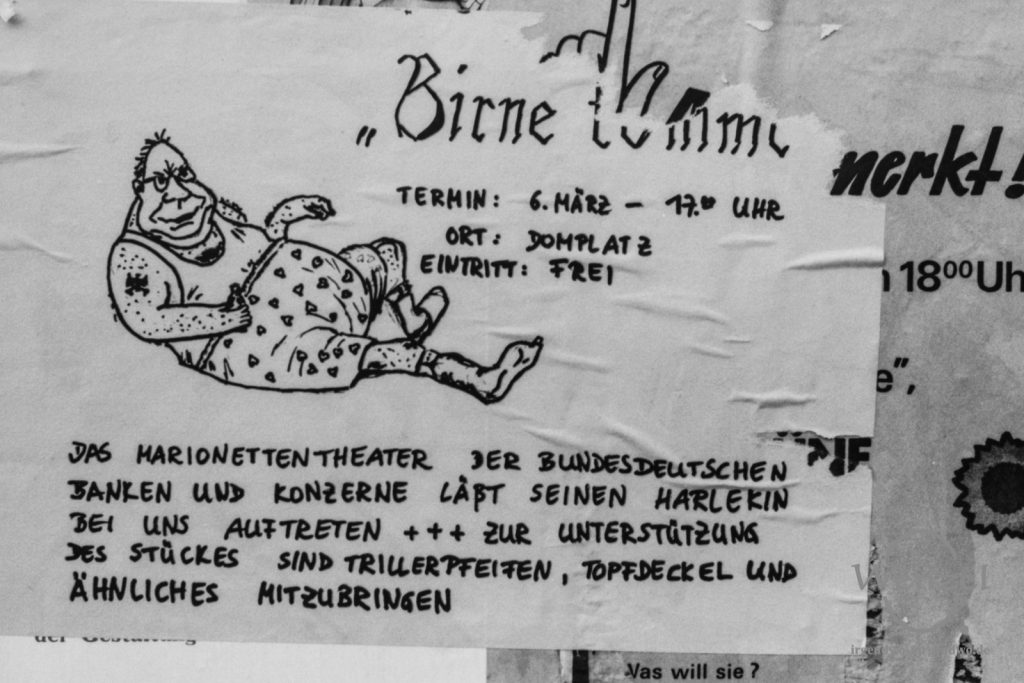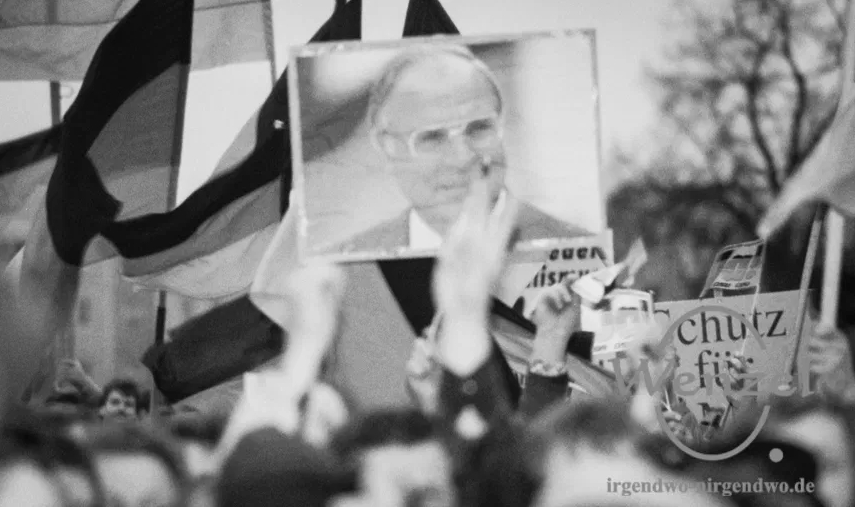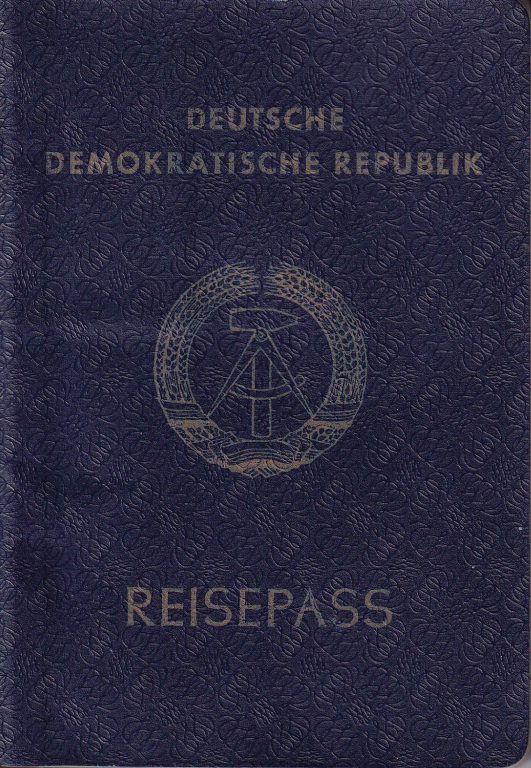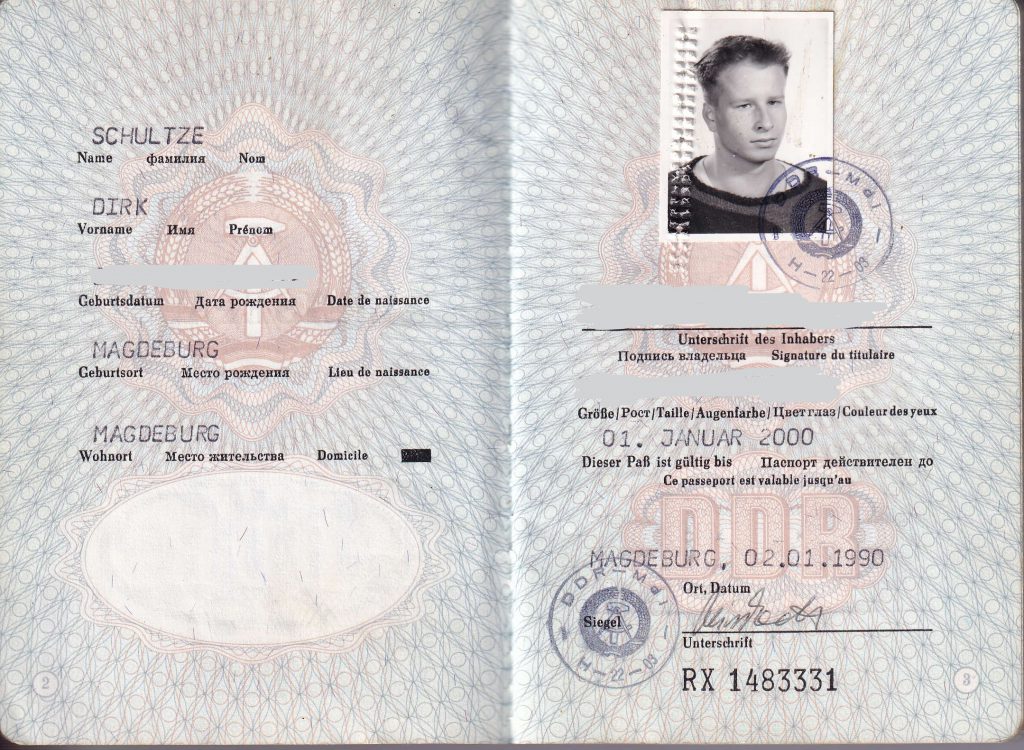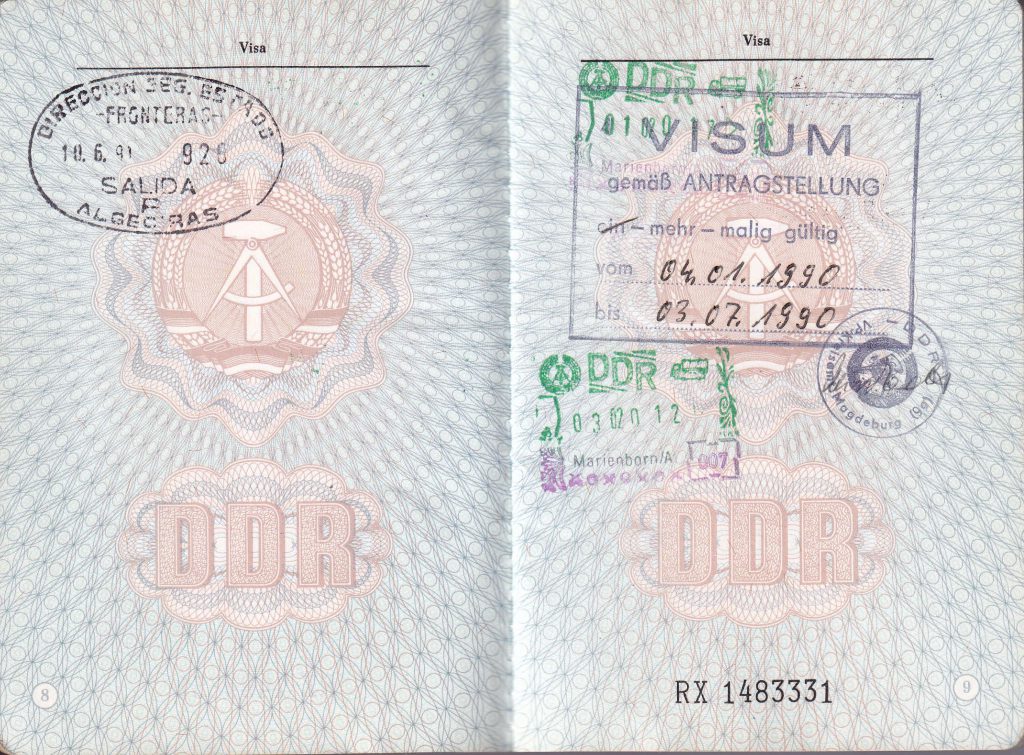This morning my wife, from Malawi and still somewhat disappointed by the German government that doesn’t give us the Monday off, asks me: “So this is your Independence Day?!” Uhmm, I’m from East Germany, that got me thinking. Isn’t it rather Dependence Day? … Now, I intend this ironically, in all seriousness! 😉
Actually, I get the sense that this 30th anniversary is more meaningful: I think we, as East Germans, are becoming who we are. I find it is noticeable, especially these days, and it feels healthy. Less victim of circumstances and world history, more confident. Wir sind der Osten is just one of the shapes this has taken.
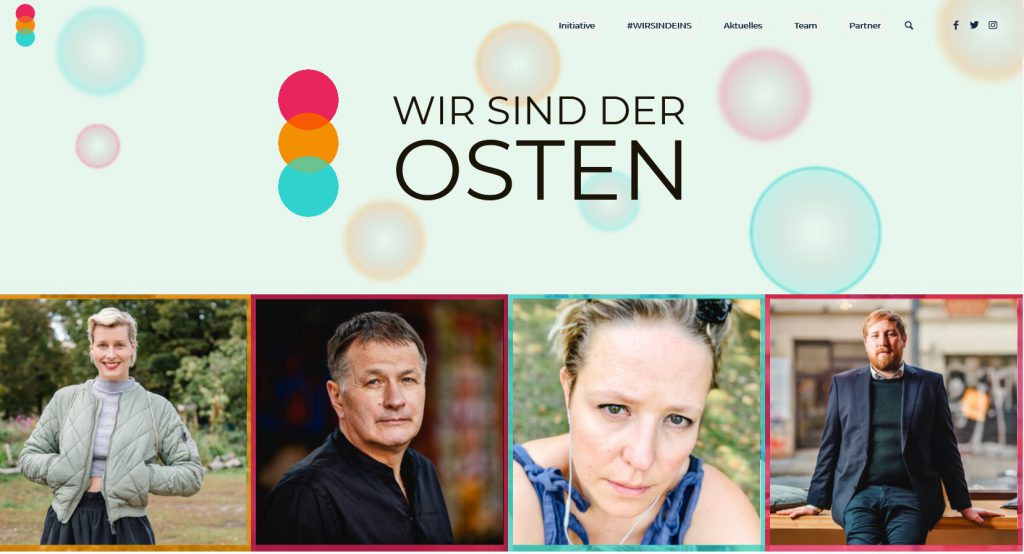
No, German unity or a German identity wasn’t what I had on my mind during our rather peaceful rebellion in 89/90 (see earlier posts here and here and here). That inspired my vote in the first free elections on 18 March 1990, the GDR’s last, and my first elections ever: I voted for those who said No to a rapid unification. Later that year I became a work commuter and saw the rush-hour busses and trams getting emptier and emptier every month, saw the newspaper shop by the station closing down, saw the factories being split up and/or closed down, saw crime and violence on the rise – that obviously wasn’t the blooming landscapes of then-chancellor Kohl’s p.r.-tours, which a majority of East Germans had fallen for.
Picture sources here and here
I moved further East – and more importantly: north, to the Baltic Sea coast. I made the most of what was available: I studied, travelled, worked, started work at uni, PhD, partnerships, a house (now sold). Many firsts on the list, and often I was the first East German to turn up somewhere (for some years I travelled on my old GDR passport, until it became invalid – ironically, one of the first visas is for West Germany).
Life for me and my nuclear family was generally fine, nothing really to complain about, except mom’s career ended badly, as it did for so many of her generation. Apart from that, we fit in, and sometimes it felt too much so. On the other hand, I also felt estranged by backward-looking East-Germanness, which seemed to be more pronounced in more southern areas. I was up north, in a university town that started booming while former industrial centres, mostly in the south like my home town, went down the drain. For a while I assumed a “European” identity. I was a fan of European unity, it was going to be alright, great even, or so my travelling suggested. That was until a bit over decade ago or so. The idea of Europe is in agony, and the face of Europe has put on an all-too familiar ugly mask of tribalism, selfishness, post-colonial defensiveness and aggression. That is my disappointment, not the process of German re-unification. Not anymore.
Now I’ve been living in the West-German diaspora for eight years, and I enjoy where I am. True, it’s not an old homeliness, and true also there were some snide remarks at the beginning: a young colleague, born and bred “Wessie”, referred to 3 October for me as “people’s day of mourning” (“Volkstrauertag”), allegging that the Westerners had suffered from the re-unification. Another one once called me derisively an “Ossie” (Easterner) when I criticized the numerous self-conscious uses of “we hope” on some slides: “I don’t like ‘we hope’ here” – “You Ossie!”. I lowered my glasses and gave her a calm and serious look, to which the whole room fell silent. And then we continued. No bad blood.
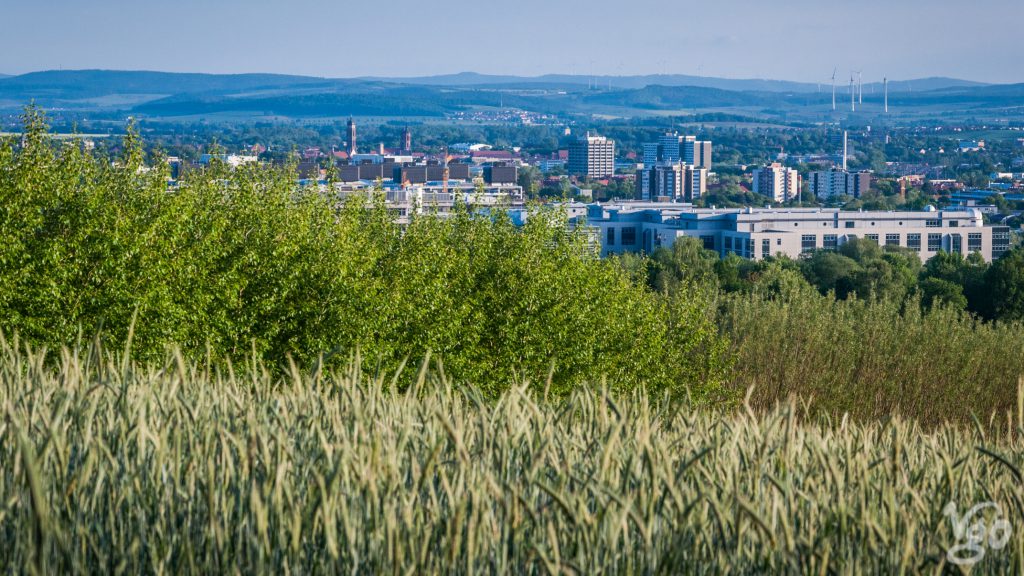
Amidst all of this, I discovered “Africa” for myself, that is, a large part of it, quite a number of different countries, and found lots of connections, old and new ones. It has helped me understand colonialist and supremacist dynamics, and in various ways it has also helped me reconnect with my past. After all, I was familiar with the likes of Patrice Lumumba, whose name always rang a bell – some friends used to live in Lumumba Street. And hadn’t we supported Angola and Mozambique, and Mandela and the ANC, too? More importantly, many of my African friends and I share the experience of living in some form of Socialism, under a dictatorship (mild or harsh), of living a public and a private life, and first and foremost of all living a life that is closer to basic-need fulfillment than to overstocked shelves. (The few empty shelves that Corona brought us earlier this year indeed calmed me down). And this: “Africa” has offered me a wife with whom I love living together not least because some of our interactions are more reminiscent of how I remember East German directness, groundedness. Less aloof than life often is in this here unified Germany. That simply feels right 🙂
Have a happy holiday, everyone, if you so wish!

